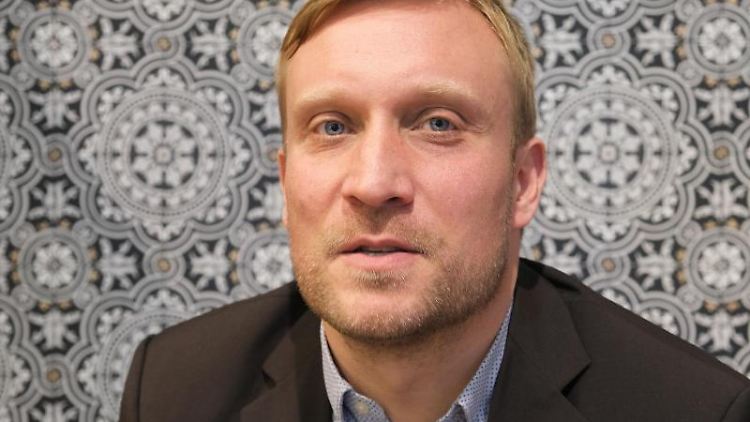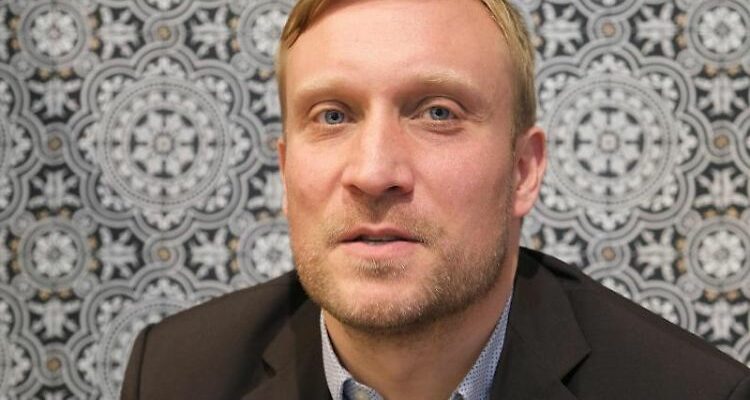The Sahra Wagenknecht alliance is very well received in the eastern German states, as initial surveys show. Some things are reminiscent of the old SPD, some things are reminiscent of the Left, some things are reminiscent of the AfD. In an interview with ntv.de, political scientist and party researcher Benjamin Höhne explains why the new party is attractive to many, how it could weaken the AfD and whether it is an enrichment or a burden for democracy.
ntv.de: Mr. Höhne, the Sahra Wagenknecht alliance has already achieved double-digit results in the first surveys since the party was founded in January in Saxony, Brandenburg and Thuringia. Was the start successful?

Prof. Dr. Benjamin Höhne will take over the professorship for European government systems in comparison at Chemnitz University of Technology for three years from April 1st.
(Photo: Franziska Höhnl/dpa-Zentralbild/dpa/archive image)
Benjamin Höhne: That’s what it looks like and that really surprised me. A few years ago, Sahra Wagenknecht had already tried something similar. With the “Get Up” movement she apparently wanted to build a movement party. This seemed to me like a test balloon for founding my own party. But this attempt failed.
Why actually?
This was mainly because doing the actual organizational development work is not their strength. In her new party, the BSW, she now has the support of some former left-wing politicians who are taking on this work for her. To put it bluntly: This time she has more people at her side who know party politics.
That sounds like: So far, so good.
Demographic surveys show that the potential on the voter market is definitely there for your party. But the question is whether she will manage to make these potential voters an offer that they will actually accept and vote for the BSW. Apparently, however, her political offer hits a lot more of a nerve this time than with “Stand Up”.
Elections will take place in autumn in Saxony, Brandenburg and Thuringia. Why is Wagenknecht’s mixture so well received there? Does it fill a gap?
Yes, there was no party like the BSW before. In political science we classify parties on a socio-political and an economic axis. The BSW occupies the field that focuses heavily on social justice, redistribution and state intervention in the economy. But, and this is the crucial point, all of this applies, to put it bluntly, only to Germans. In socio-political terms, the party ranges from conservative to authoritarian. This can be seen from the fact that Wagenknecht has just called for toughness against criminals again and ultimately also from the fact that the party is completely tailored to her person.
But we have always had left and right parties.
But not in this melange. Left-wing parties in Germany are also socio-politically progressive. The Greens and the SPD are committed to equality on various levels, for example for the rights of minorities and for the actual equality of men and women. They do not exclude any population groups like the right wing does. There was not yet a left-wing authoritarian party in German democracy. Wagenknecht recognized a gap.
The AfD is also trying to score points with social policy only for Germans.
Yes, the originally neoliberal AfD is also trying to play the social card, especially in the East. But I think most people don’t really believe that she really cares about social justice. For the right, the migration issue is clearly in the foreground, but also the rejection of the other parties or plural democracy as a whole. Then she meets again with Wagenknecht, who also reveals a populist tendency.
How does this manifest itself?
In that it is rhetorically against the establishment, against those up there. But their contempt for democracy probably won’t go as far as the AfD’s. It is not yet clear whether the BSW, like the AfD, considers all other parties to be superfluous, like yesterday’s “old parties”. A lot of things are still in flux. I expect that Wagenknecht will sound out exactly what will ultimately bring the best election results to her formation.
Isn’t the populist element central and a core element of the party?
You can put it so bluntly. She says, for example, that the traffic lights are destroying democracy or that it is the stupidest government in Europe. In the past, parties would never have brought this up to each other’s ears, even during a heated debate.
Even if the BSW is a new party, some things are reminiscent of the old SPD. At least the former party leader Oskar Lafontaine is back at the forefront – he is also Wagenknecht’s husband. Or is this a new left-wing party without “wokeness” and gender asterisks?
Both not. The BSW cannot be a new left-wing party, because then it would have to campaign universally against discrimination and for more equality and equality for minorities, especially people with a migration background. There are similarities to the old SPD. The SPD has always had a strong conservative wing. Think of the Seeheimer Circle or people like Otto Schily or Helmut Schmidt. But there is a crucial difference: the SPD has never stood “against the system” and has never radically questioned it. But Wagenknecht does exactly that. She discredits it, she disavows it and thereby reinforces the anti-system sentiment of some parts of the population.
As expected, anti-American and very pro-GDR tones were heard at the founding party conference. Will the BSW also be primarily an Eastern party?
That’s what it looks like. This is primarily a problem for the Left Party. Their clientele is primarily in the East. This is where Wagenknecht’s views on migration and, in general, her left-wing, authoritarian orientation are particularly compelling. It was no problem for old SED cadres in the GDR to be for socialism and at the same time support the authoritarian state at the border, i.e. in extreme cases to shoot people who just wanted to leave the country.
What does this mean for the left?
This is a big problem for a progressive left-wing party. She could lose a large chunk of her electorate. In the West it will be difficult to remain represented in parliament because the Greens and the SPD already occupy this position in the party system.
The BSW party program only has four pages and is full of generalities. A lot of things still seem nebulous. Is that part of the strategy?
That’s definitely part of the strategy. We also know this from other parties. You express yourself vaguely in order to appeal to as many people as possible. The more specific you get, the more likely it is that some people will turn away again. Wagenknecht wants to reach as many people as possible, including on the right-wing spectrum, in the lateral thinker scene and in the conspiracy theory milieu. With her diffuse slogans against “the system” or the traffic lights, she could possibly succeed to some extent.
The big question is whether the BSW will steal votes from the AfD. Can this already be observed? Or isn’t the left more likely to suffer?
I could imagine that one or two people who voted for the AfD out of political frustration, protest and dissatisfaction would switch to the Wagenknecht party. This particularly affects those who are not right-wing extremists themselves and have only more or less accepted right-wing extremism in the AfD. The question is also to what extent the BSW can reach voters who would otherwise no longer vote. However, right-wing populism will not disappear or diminish substantially.
Would it still be a reason to be happy, according to the motto: The main thing is that the AfD is weakened?
Because of the BSW, the AfD may no longer have a chance of finishing first in the three eastern countries. That would certainly add to the political symbolism. However, governing would become more difficult. In Saxony, an extreme situation could arise where only the CDU, AfD and BSW would be represented in the state parliament. The fact that the Greens and the SPD do not manage to re-enter the country is definitely a danger, especially when the anti-establishment parties are mobilizing strongly. Then the CDU would have to ask itself who it is in a coalition with and which partner would be the lesser evil for it and democracy. She might enter into a coalition that she never imagined, or be tolerated by the BSW in a minority government.
Is the BSW more of a threat or an asset to democracy?
I would be cautious about calling it an enrichment. At the BSW we are dealing with another anti-system party, even if it is not yet clear how far their distance from pluralistic democracy extends. The bottom line is that the internal challenges to democracy are increasing. I doubt that she will be the winner in the end thanks to another populist party.
Volker Petersen spoke to Benjamin Höhne
